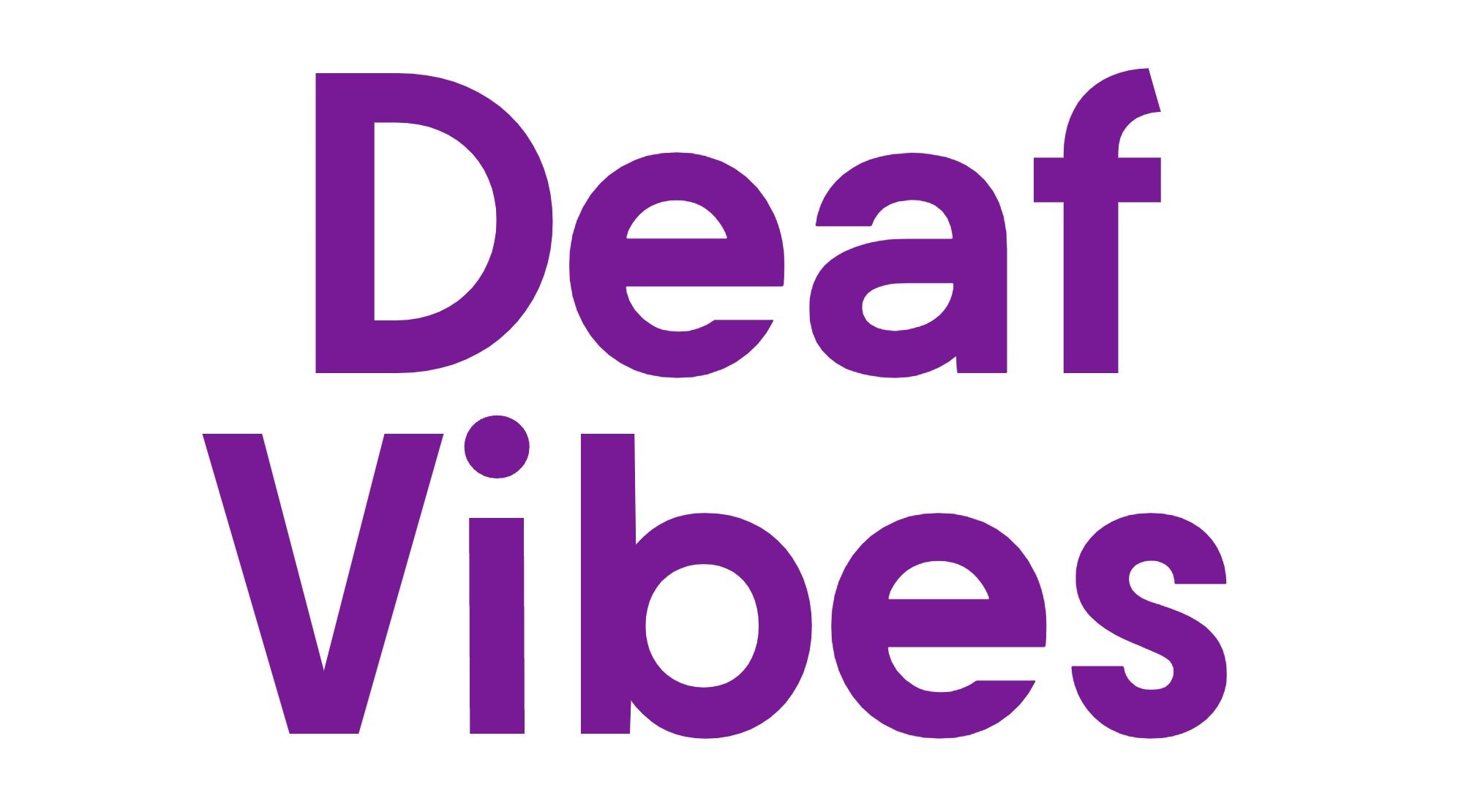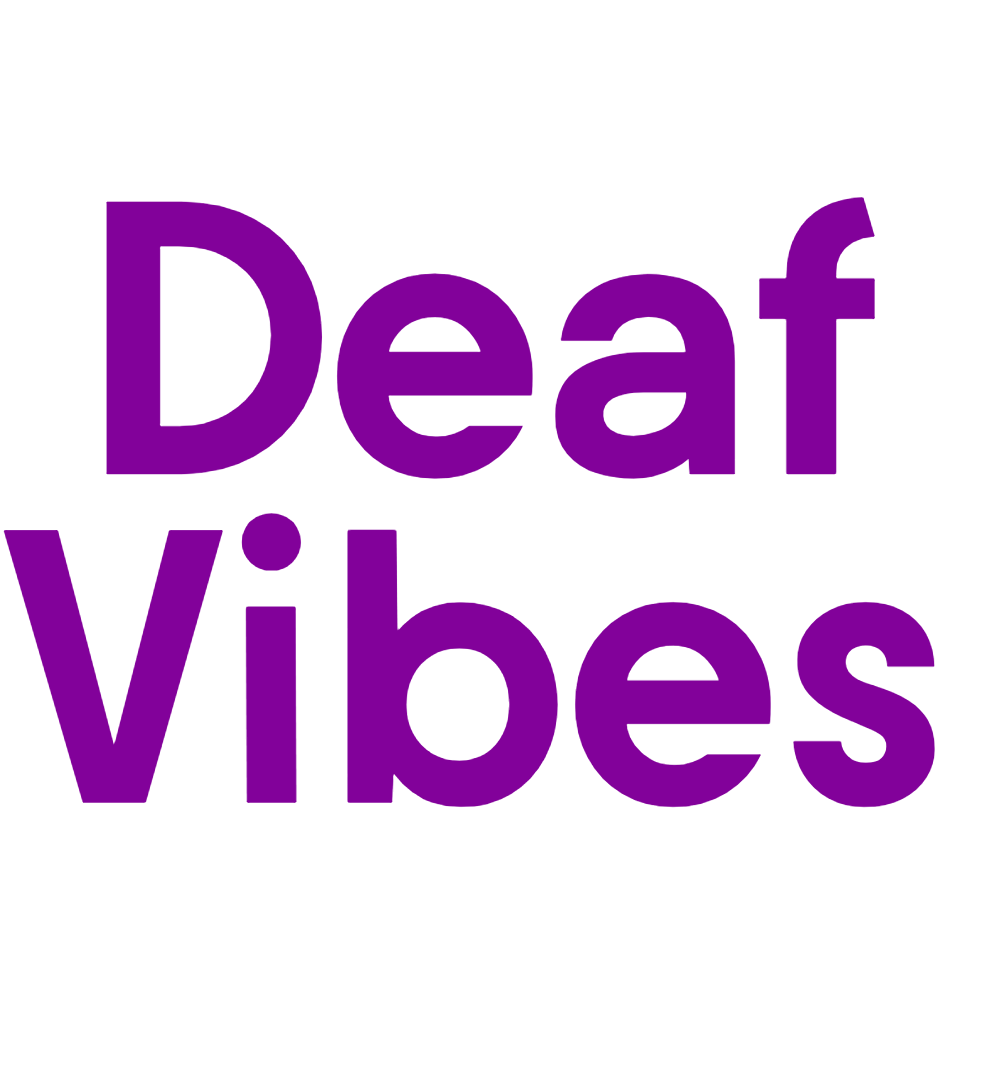Therapies and Interventions
What Makes Speech Therapy Month So Important?
Lend your ear to uncover the layers of significance behind Speech Therapy Month and its impact on millions.

As we commence the observance of Speech Therapy Month, it’s worth noting that around 7.5 million individuals in the United States are impacted by communication disorders.
This month serves as a platform to shed light on the critical work done by speech-language pathologists and audiologists in transforming lives through improved communication.
Understanding the depth of impact and the multifaceted aspects of speech therapy can lead to a deeper appreciation for the importance of this annual observance.
Key Takeaways
- Raises awareness about communication disorders and celebrates diversity in communication.
- Advocates for early intervention and highlights the vital role of speech-language pathologists.
- Emphasizes the impact of early detection and personalized therapeutic interventions.
- Promotes community support, innovative technologies, and ongoing research for improved communication outcomes.
History of Speech Therapy Month
How did Speech Therapy Month, also known as Better Hearing and Speech Month, come to be established in 1927 by the American Speech-Language-Hearing Association (ASHA)? The history of this significant month traces back to ASHA's recognition of the need to raise awareness about communication disorders and the vital role of speech-language pathology services. Since its inception, Speech Therapy Month has served as a platform to celebrate the diversity in communication and advocate for early intervention in speech and language disorders.
Over the years, the observance has evolved to highlight the invaluable contributions of speech-language pathologists and audiologists in assisting individuals facing communication challenges. By delving into the history of Speech Therapy Month, we gain a deeper appreciation for the dedication of professionals in this field and the ongoing efforts to support those with communication difficulties. Understanding the origins of this observance underscores the importance of continued education, advocacy, and support for individuals with speech and language disorders.
Impact on Communication Disorders

Communication disorders affect millions of individuals across various demographics, underscoring the need for effective therapeutic interventions.
Early detection plays a crucial role in addressing these disorders and improving outcomes.
Recognizing the prevalence and impact of these conditions is essential in fostering awareness and facilitating timely intervention.
Communication Disorder Prevalence
Amidst the vast population of roughly 46 million Americans impacted by communication disorders, the spectrum of these challenges spans from mild to profound, affecting crucial language, speech, and hearing processes within individuals. These disorders can present in various forms, impacting articulation, fluency, voice, comprehension, and language use. Below is a table highlighting key points about communication disorder prevalence:
| Facts about Communication Disorder Prevalence | |
|---|---|
| Total Americans Affected | Roughly 46 million |
| Types of Impacted Processes | Language, Speech, Hearing |
| Range of Severity | Mild to Profound |
Understanding the prevalence of communication disorders emphasizes the need for increased awareness, early detection, and effective interventions to help individuals navigate and overcome these communication challenges.
Therapeutic Interventions Effectiveness
In addressing communication disorders, therapeutic interventions through speech therapy have demonstrated significant effectiveness in enhancing individuals' language and speech skills. These interventions aim to improve articulation, fluency, voice, and language abilities, ultimately contributing to better communication and social interactions.
Research highlights the importance of early intervention in speech therapy for more favorable outcomes in treating communication disorders. Evidence-based practices in speech therapy involve personalized treatment plans tailored to meet the unique needs of each individual.
By focusing on therapeutic interventions, speech therapy strives to enhance the overall quality of life for those facing speech and language difficulties.
- Therapeutic interventions improve articulation, fluency, voice, and language skills.
- Early intervention in speech therapy leads to better outcomes.
- Personalized treatment plans are essential for effective therapy.
- Speech therapy enhances communication and social interactions.
- The goal is to improve the overall quality of life for individuals with speech and language difficulties.
Importance of Early Detection
Recognizing the significance of early detection in identifying and addressing communication disorders is paramount for effective intervention and support. Early detection plays a crucial role in ensuring that individuals receive timely assistance, which can significantly impact their academic performance and social interactions.
Research underscores the critical importance of identifying communication disorders early on to implement appropriate interventions promptly. However, a lack of awareness about communication disorders often acts as a barrier to early detection. Organizations like ASHA's Identify the Signs campaign offer valuable resources to aid in the early identification of communication disorders.
Advocacy for Speech Therapy Awareness
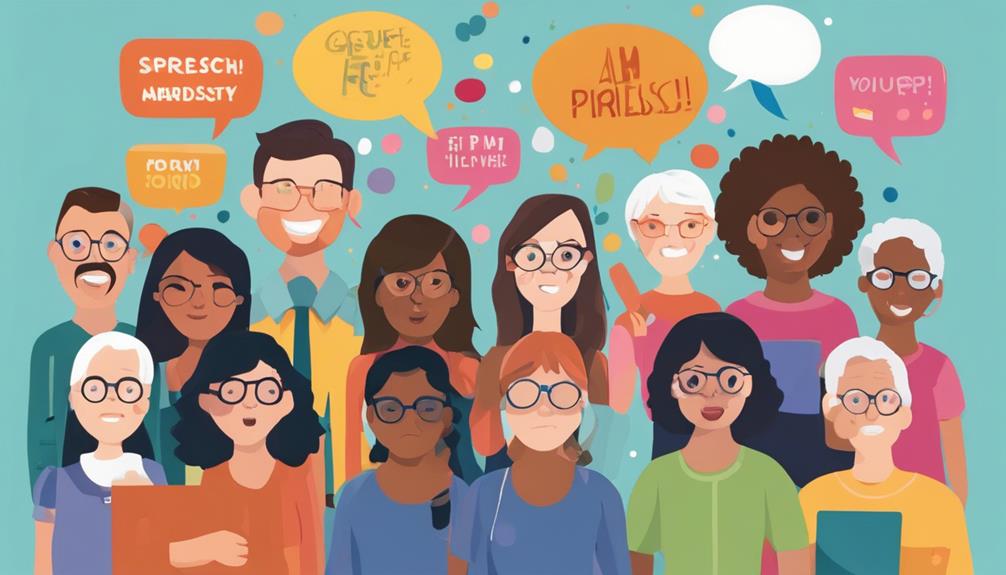
As we explore the importance of speech therapy Month, it's crucial to emphasize the need for raising awareness efforts in advocating for speech therapy.
Educating communities about the impact of speech therapy on individuals with communication disorders is vital in promoting understanding and acceptance.
Raise Awareness Efforts
Efforts to raise awareness for Speech Therapy Month aim to illuminate the prevalence of speech disorders and emphasize the critical need for early intervention and treatment. It's important to shed light on these issues to ensure individuals with communication challenges receive the support they need.
Here are some ways advocacy for Speech Therapy Month raises awareness:
- Hosting informational webinars and workshops
- Sharing personal stories of individuals benefiting from speech therapy
- Collaborating with schools to educate teachers and parents
- Utilizing social media campaigns to reach a wider audience
- Organizing community events to promote understanding and acceptance
These initiatives play a vital role in increasing understanding and support for those facing communication disorders.
Importance of Education
To truly understand the impact of speech disorders and the critical role speech-language pathologists play in addressing these challenges, it's essential to prioritize education and advocacy efforts during Speech Therapy Month.
Education serves as a cornerstone in raising awareness about communication disorders and the significance of early intervention provided by speech therapists. By promoting education about speech therapy, we can facilitate the early detection of communication disorders in children, paving the way for timely support and intervention.
Increased awareness not only fosters better support systems for individuals facing speech and language difficulties but also underscores the profound impact of effective communication on overall well-being.
Through advocacy for speech therapy awareness, we can emphasize the vital role communication plays in enriching lives and fostering connections within our communities.
Impact on Communities
Raising awareness about the impact of speech therapy on communities is crucial during Speech Therapy Month.
- Early detection and intervention for individuals with communication disorders.
- Improved social interactions and academic performance.
- Enhanced quality of life through better communication skills.
- Inclusivity and support for individuals of all ages facing speech and language challenges.
- Advocacy for speech therapy promotes community understanding and acceptance.
Importance of Early Intervention Programs

During the crucial early stages of a child's development, timely intervention through specialized programs for communication disorders can profoundly impact their future academic and career paths. Early intervention programs play a vital role in identifying and addressing communication disorders promptly, setting children on a trajectory towards success. Here is a table summarizing the key points regarding the importance of early intervention programs:
| Key Points | Importance |
|---|---|
| Early detection crucial for effective intervention | Ensures issues are addressed before they hinder development |
| IDEA supports early intervention services | Emphasizes the significance of timely support for children |
| Lack of awareness hinders early detection | Education and awareness campaigns are essential for detection |
| ASHA's Identify the Signs campaign | Provides valuable tools and resources for early disorder detection |
Being proactive in recognizing and addressing communication disorders through early intervention programs can make a significant difference in a child's life, paving the way for a brighter and more successful future.
Role of Speech Therapists in Education

Speech therapists play a vital role in enhancing communication skills and fostering academic success for students with communication disorders in educational settings. As professionals dedicated to helping students reach their full potential, speech therapists make a significant impact on the academic journey of those facing communication challenges. Here are five key ways speech therapists contribute to education:
- Improving Oral and Written Language Skills: Speech therapists assist students in developing both oral and written language abilities, crucial for effective communication and academic advancement.
- Enhancing Social Engagement: By working on communication skills, speech therapists help students engage more effectively with peers, teachers, and the learning environment.
- Boosting Reading Readiness: Language skills improved through speech therapy contribute to better reading readiness, laying a strong foundation for academic success.
- Promoting Collaboration: Collaboration between educators and speech therapists supports holistic child development, ensuring that students receive comprehensive support.
- Addressing Communication Challenges: Integrating speech therapy services into classrooms helps address communication obstacles, leading to improved learning outcomes for students.
Community Support for Speech Therapy

Community support for speech therapy is vital for individuals with communication challenges. It provides encouragement and access to resources, fostering awareness and understanding within the community. By advocating for those in need of speech therapy services, collaborative efforts help reduce stigma surrounding communication disorders. This promotes inclusivity and empowers individuals to improve their communication skills.
Impact of Community
Band together with neighbors and local organizations to amplify support for individuals with communication disorders, enhancing access to vital speech therapy services. Community support plays a crucial role in raising awareness about communication disorders and the benefits of speech therapy. Here are some ways community involvement can make a significant impact:
- Collaborative efforts promote understanding of speech therapy benefits.
- Involvement helps reduce stigma surrounding communication disorders.
- Encourages early intervention for better outcomes.
- Provides resources and funding for speech therapy programs.
- Fosters a supportive environment where individuals feel empowered to achieve communicative success.
Together, we can create a more inclusive and supportive community for those undergoing speech therapy.
Access to Resources
Working together with our neighbors and local organizations, we can ensure that individuals with communication disorders have access to the essential resources needed for effective speech therapy. Access to resources such as speech-language pathologists and audiologists is crucial for enhancing treatment outcomes and providing quality care. By collaborating with community organizations and professionals, we can improve awareness and support for speech therapy, ultimately benefiting those in need. Community-based programs also offer early intervention services for children with communication disorders, setting them on a path towards improved communication skills. Support from local communities plays a vital role in promoting better communication and speech therapy services, making a significant impact on the lives of individuals with communication disorders.
| Resources | Benefits |
|---|---|
| Speech-Language Pathologists | Enhanced treatment outcomes |
| Audiologists | Improved quality of care |
| Community Organizations | Increased awareness and support |
| Early Intervention Programs | Support for children with disorders |
| Local Support | Promotes better communication services |
Advocacy for Awareness
Advocating for greater awareness of communication disorders and the invaluable role of speech-language pathologists is essential for fostering community support and understanding during Speech Therapy Month. By raising awareness, we can make a difference in the lives of those with speech and language challenges. Here are five ways community support can help create a more supportive environment for speech therapy:
- Community events that highlight the importance of communication disorders
- Collaborative efforts with schools and healthcare providers to promote early intervention
- Sharing personal stories to illustrate the impact of speech therapy on individuals' lives
- Creating educational materials to spread awareness about available resources
- Encouraging open conversations to reduce stigma and encourage seeking help for speech and language difficulties.
Addressing Stigma Around Speech Disorders

Addressing the stigma surrounding speech disorders is crucial for promoting inclusivity and enhancing the well-being of individuals facing communication challenges. Stigma can lead to social isolation, limiting opportunities and impacting self-esteem and mental health.
By raising awareness, promoting understanding, and fostering acceptance of communication differences, we can combat negative stereotypes and misconceptions. Education and advocacy are key in challenging these stereotypes and creating inclusive environments for those with speech disorders.
Through these efforts, individuals can access the support, resources, and effective speech therapy services they need. It's essential to break down barriers that prevent individuals from seeking help and fully participating in society.
Innovations in Speech Therapy Techniques

Breaking barriers in speech therapy practices, the field has seen remarkable advancements, such as telepractice and AAC devices, revolutionizing the way therapy is delivered and enhancing accessibility for individuals with communication challenges. Telepractice allows therapists to provide services remotely, breaking down geographical barriers and ensuring individuals can receive therapy from the comfort of their homes.
AAC devices have transformed therapy for those with severe communication disorders, offering alternative ways to express themselves effectively. Virtual reality (VR) therapy is an exciting innovation that immerses individuals in engaging environments to work on speech and language challenges.
Speech therapy apps and software provide interactive exercises and real-time feedback, supplementing traditional therapy approaches effectively. Furthermore, personalized therapy programs tailored to individual needs and goals are optimizing the outcomes of speech therapy interventions, ensuring that each person's unique communication needs are met with precision and care.
Collaboration With Healthcare Professionals

Through close collaboration with healthcare professionals, speech therapy is able to provide comprehensive and interdisciplinary care for individuals with communication disorders. By working hand in hand with physicians, audiologists, and psychologists, speech therapists ensure a thorough assessment and treatment of communication challenges.
This interprofessional teamwork guarantees holistic support for those facing speech, language, and hearing issues, addressing not only the symptoms but also the underlying medical conditions that may be impacting these individuals. The collaboration between speech therapists and healthcare providers is vital in optimizing treatment plans tailored to meet the diverse needs of each patient.
With this collaborative approach, the outcomes for individuals receiving speech therapy are significantly improved, leading to more effective interventions and better overall quality of care. The shared expertise and resources among healthcare professionals and speech therapists create a unified front in tackling communication disorders and promoting the well-being of those in need.
Empowering Individuals Through Speech Therapy

In our collaborative efforts with healthcare professionals, we witness firsthand the transformative impact of speech therapy in empowering individuals through improved communication skills and enhanced quality of life. Speech therapy goes beyond just addressing speech and language challenges; it equips individuals with the tools they need to express themselves effectively and engage meaningfully with the world around them.
Here are five key ways speech therapy empowers individuals:
- Personalized intervention plans tailored to individual needs
- Evidence-based strategies to tackle a wide range of communication disorders
- Promotion of effective communication, social interaction, and academic success
- Encouragement of early access for better long-term outcomes
- Enhancement of participation in daily activities through improved communication skills
Through these targeted interventions, speech therapy plays a vital role in helping individuals build confidence, foster connections, and lead fulfilling lives.
Research Advancements in Speech Therapy

We're excited to share the latest developments in speech therapy research that are enhancing treatment outcomes for individuals with speech disorders.
Innovative technology applications are revolutionizing therapy techniques, providing more effective interventions.
These advancements are paving the way for improved communication and quality of life for those in need of speech therapy.
Latest Therapy Techniques
Utilizing innovative techniques like teletherapy and virtual reality, speech therapy research continues to advance, offering tailored treatment plans for individuals with speech disorders. These latest therapy techniques aim to provide more effective interventions and improve outcomes for those with communication challenges. Here are some key advancements:
- Teletherapy allows for remote access to speech therapy services, benefiting individuals with hearing impairments.
- Virtual reality simulations create interactive environments for speech practice and social communication skills development.
- Personalized treatment plans cater to the specific needs and goals of each individual, enhancing the effectiveness of therapy.
- Neuroimaging advancements help in understanding how speech and language are processed in the brain, guiding therapy approaches.
- Evidence-based practices ensure the reliability and success of speech therapy interventions.
Innovative Technology Applications
Exploring the latest advancements in speech therapy research, we delve into the innovative technology applications revolutionizing the field. Technology has transformed speech therapy with tools like telepractice, enabling remote therapy sessions.
Speech recognition software and interactive apps offer engaging activities for clients, enhancing their sessions. Virtual reality (VR) and augmented reality (AR) are creating immersive environments for therapy simulations.
Data analytics and machine learning algorithms help personalize treatment plans and optimize outcomes. Wearable devices and sensors monitor speech patterns, aiding in assessment and treatment monitoring.
These technological advancements are reshaping the landscape of speech therapy, offering new ways to improve communication skills and enhance the overall therapy experience for clients.
Treatment Outcomes Improvement
Research advancements in speech therapy have significantly elevated treatment outcomes for individuals grappling with communication disorders, paving the way for more effective therapy techniques and interventions tailored to each person's unique needs. Through innovative studies and developments, the field of speech therapy has made remarkable progress in improving the quality of care and outcomes for those in need.
Here are some key points to consider regarding the improved treatment outcomes in speech therapy:
- Enhanced understanding of the underlying causes of various speech disorders.
- Personalized treatment plans tailored to each individual's needs and challenges.
- Optimized therapy approaches for better long-term communication outcomes.
- Development of more effective therapy techniques and interventions.
- Ongoing research efforts to further advance treatment outcomes in speech therapy.
Funding and Accessibility for Speech Therapy

Ensuring adequate funding and accessibility for speech therapy services is crucial for addressing the needs of individuals with speech and language disorders. Many children with these disorders face barriers to receiving essential speech therapy interventions due to funding limitations, insurance constraints, and high out-of-pocket costs. Public schools, constrained by budget limitations, may struggle to provide sufficient speech therapy services, impacting the progress of students with communication disorders. The lack of funding for speech therapy programs also disproportionately affects underserved communities. Improved funding and accessibility for speech therapy can greatly enhance outcomes for individuals facing speech and language challenges.
| Challenges | Impact | Solution |
|---|---|---|
| Funding limitations | Restricted access to therapy | Advocacy for increased funding |
| High out-of-pocket costs | Financial barriers to treatment | Insurance coverage expansion |
| Budget constraints in schools | Reduced services for students | Resource allocation advocacy |
Celebrating Success Stories in Speech Therapy

Let's celebrate the remarkable success stories that highlight the transformative impact of speech therapy interventions. Hearing about the journeys of individuals who've overcome speech challenges through therapy can be truly inspiring and uplifting.
Here are some key points to enjoy:
- Personal Growth: Witnessing individuals develop better communication skills and confidence.
- Improved Relationships: Seeing how enhanced speech abilities strengthen connections with loved ones.
- Professional Achievements: Recognizing how speech therapy opens doors to new opportunities in careers.
- Community Engagement: Understanding the positive ripple effects speech therapy success stories can have on society.
- Empowerment: Learning about individuals regaining their voice and agency through therapy.
These anecdotes not only showcase the effectiveness of speech therapy but also serve as beacons of hope for those currently facing similar challenges. By sharing these success stories during Speech Therapy Month, we amplify the importance of continued support and access to speech therapy services for all who need them.
Future Outlook for Speech Therapy Month

Looking ahead, we envision a future for Hearing and Speech Month that continues to shine a light on the vital role of speech therapy in transforming lives through enhanced communication skills. As we move forward, it's crucial to amplify awareness about the significance of early intervention in speech and language challenges. By emphasizing the impact of speech-language pathologists (SLPs) in helping individuals overcome communication disorders, we aim to foster a community that values and supports speech therapy services.
In the future, Hearing and Speech Month will serve as a platform for ongoing research and advocacy efforts to improve access to quality speech therapy for all in need. By celebrating the achievements and progress made by individuals undergoing speech therapy, we can inspire others to seek help and break down barriers to effective communication. Together, we can create a future where everyone has the opportunity to develop their communication skills and lead fulfilling lives.
Frequently Asked Questions
Why Is Speech Therapy Important?
Speech therapy is crucial because it helps individuals improve their communication skills, enhancing their ability to express themselves effectively. It plays a vital role in supporting social interactions and academic success for those facing speech challenges.
Early intervention is key as it can significantly impact a child's language development. By customizing therapy to address specific needs, we promote better connections and quality of life for those we serve.
What Is the Purpose of Better Speech and Hearing Month?
During Better Speech and Hearing Month, we focus on raising awareness about communication disorders and the crucial roles of speech-language pathologists and audiologists.
The theme 'Communication—the Key to Connection' highlights how vital communication is in fostering relationships.
This month-long celebration in May promotes diversity in communication and advocates for early language and literacy skills.
Resources from organizations like ASHA and ED.gov/OSERS support initiatives aimed at enhancing awareness and early intervention for those with communication disorders.
What Is the Main Goal of Speech Therapy?
The main goal of speech therapy is to improve communication skills and abilities in individuals with speech and language disorders.
We focus on addressing specific speech and language issues to enhance clarity, articulation, fluency, and overall communication effectiveness.
Through individualized therapy plans, we target each individual's unique communication challenges to promote growth and progress.
Our aim is to help individuals develop functional communication skills for improved social interactions, academic success, and overall quality of life.
What Is the Theme for Speech Therapy Month 2023?
The theme for Speech Therapy Month 2023 is 'Empowering Voices: Enhancing Communication for All.'
It focuses on promoting inclusive communication and empowering individuals through speech therapy.
This theme highlights the importance of effective communication in all aspects of life.
It aims to raise awareness about the impact of speech therapy on individuals' lives and emphasizes the role of speech therapists in helping individuals overcome communication challenges and reach their full potential.
Conclusion
As we wrap up Speech Therapy Month, let's remember that communication is more than just words – it's the bridge that connects us all.
Like a symphony conductor guiding each note, speech therapists play a vital role in helping individuals find their voice and communicate effectively.
Let's continue to support and celebrate the progress made in speech therapy, knowing that every success story is a testament to the power of communication.
Therapies and Interventions
5 Auditory Comprehension Therapy Techniques for Better Understanding
Step into the world of auditory therapy techniques that can revolutionize your comprehension skills, starting with discrimination exercises and memory strategies – discover what's next!

As we explore auditory comprehension therapy techniques for better understanding, you might not be aware of the impactful methods that professionals employ to enhance this crucial skill.
From specific exercises targeting discrimination to strategies focusing on memory and context clues, the realm of auditory therapy holds numerous tools waiting to be discovered.
By uncovering these techniques, individuals can unlock a world of improved communication and learning abilities.
Key Takeaways
- Auditory Discrimination Training enhances sound differentiation for improved understanding.
- Following Directions Exercises boost listening skills and academic performance.
- Memory enhancement techniques like repetition and visualization aid in better comprehension.
- Active Listening Strategies, including asking clarifying questions, improve communication skills effectively.
Auditory Discrimination Training
In Auditory Discrimination Training, we focus on enhancing individuals' ability to differentiate between various sounds or words to improve comprehension. This therapy technique is crucial in speech therapy as it helps individuals with language processing difficulties. By engaging in exercises that require distinguishing subtle differences in auditory stimuli, individuals can improve their auditory comprehension skills. For those with aphasia or other communication disorders, Auditory Discrimination Training plays a vital role in sharpening their listening abilities.
Through targeted activities and practice, individuals can strengthen their auditory discrimination, leading to better interpretation of spoken language. By honing these skills, individuals can enhance their overall auditory processing abilities, resulting in improved understanding and communication. This training method is designed to assist individuals in accurately perceiving and interpreting auditory information, ultimately aiding in their language comprehension. In the realm of Speech Therapy, Auditory Discrimination Training is a fundamental technique for enhancing auditory comprehension and communication skills.
Following Directions Exercises

Engaging in following directions exercises enhances auditory comprehension skills in children, fostering improved understanding and academic performance. These exercises are crucial for improving communication and addressing auditory comprehension deficits in children. By practicing following directions tasks, children can develop compensatory strategies to overcome challenges in understanding instructions.
Here is a table highlighting the benefits of following directions exercises for improving auditory comprehension:
| Benefits of Following Directions Exercises |
|---|
| Helps improve listening skills |
| Enhances ability to process information |
| Boosts academic performance |
| Provides targeted practice for specific difficulties |
| Fosters effective communication skills |
To help your child improve their auditory comprehension, incorporating following directions exercises into their routine can make a significant difference. Consistent practice and support are key in helping children develop these essential skills for better communication and academic success.
Auditory Memory Enhancement Techniques
Transitioning from following directions exercises, auditory memory enhancement techniques focus on improving retention and recall of auditory information through strategies like repetition, visualization, and chunking. These techniques aim to increase auditory comprehension by strengthening auditory processing and memory.
Here are some key points to consider:
- Repetition: Repeating information helps reinforce memory and aids in better retention of spoken details.
- Visualization: Creating mental images of the information being heard can enhance memory recall.
- Chunking: Breaking down information into smaller, manageable chunks improves the ability to process and remember larger amounts of data.
- Overall Improvement: Implementing auditory memory enhancement techniques can lead to better language comprehension, reduced communication breakdowns, and improved learning outcomes.
Context Clue Utilization

Utilizing context clues enhances comprehension by analyzing surrounding information to decode unfamiliar words or phrases. Context clue utilization plays a critical role in language processing, especially for individuals with global aphasia.
When faced with written directions or unfamiliar terms, understanding context clues can aid in deciphering meanings and enhancing overall comprehension. As Speech-Language Pathologists, we often encourage patients to pay close attention to details such as tone, setting, or related words to infer the intended message.
By honing this skill, individuals can fill in gaps in understanding and improve their ability to grasp information more effectively. Context clue utilization is a valuable technique that provides additional context to support individuals in interpreting language and communicating more clearly.
Developing proficiency in identifying and interpreting context clues can significantly boost auditory comprehension skills and empower individuals to navigate various communication scenarios with greater ease.
Active Listening Strategies
Active listening strategies play a crucial role in enhancing comprehension and communication effectiveness by incorporating techniques such as maintaining eye contact and providing verbal cues to show engagement. When practicing active listening, remember to:
- Ask clarifying questions: This demonstrates your interest and ensures you understand the spoken language accurately.
- Paraphrase what you heard: Summarizing the speaker's words not only confirms your understanding but also shows that you're actively engaged in the conversation.
- Reflect on emotions and body language: Paying attention to non-verbal cues enhances comprehension and helps in responding appropriately.
- Practice regularly: Consistent use of active listening techniques can be particularly beneficial for individuals with Wernicke's aphasia or other communication disorders. Speech-Language Pathologists often recommend these strategies to improve overall communication skills.
Frequently Asked Questions
How Do You Improve Auditory Comprehension?
Improving auditory comprehension involves using strategies like chunking and visualization, which enhance understanding in children. Tailored support from Speech-Language Pathologists is vital for implementing these techniques effectively.
Repetition is key in developing auditory comprehension skills. By employing teaching methods such as chunking and visualization, children can better grasp information, aiding in academic success.
Strong auditory comprehension skills are crucial for improved academic performance and readiness for future educational challenges.
What Are Auditory Comprehension Activities?
When it comes to auditory comprehension activities, they involve tasks like listening to instructions, following directions, and answering questions based on spoken information. These exercises target enhancing understanding of verbal cues, improving listening skills, and increasing retention of auditory information.
Examples of such activities include story listening, auditory memory games, and comprehension exercises. Engaging in these activities helps individuals develop language skills, boost communication abilities, and enhance overall cognitive function.
How Can I Improve My Auditory Attention?
We can improve auditory attention by practicing active listening techniques, minimizing distractions, using visual aids, and engaging in activities that require following verbal instructions.
Seeking guidance from Speech-Language Pathologists can provide tailored strategies to enhance auditory attention.
By focusing on the speaker's words, maintaining eye contact, and staying alert, we can strengthen our ability to comprehend auditory information effectively.
These simple strategies can make a significant difference in improving auditory attention.
How Can I Improve My Auditory Sense?
Improving our auditory sense involves engaging in activities that challenge our listening skills.
We can practice active listening by focusing on the speaker and using visual aids to support our understanding.
Seeking guidance from a speech-language pathologist can provide tailored strategies for enhancing our ability to interpret spoken language effectively.
Conclusion
In conclusion, mastering auditory comprehension therapy techniques is like unlocking a treasure trove of understanding. By incorporating strategies like:
- Auditory discrimination training
- Following directions exercises
- Auditory memory enhancement techniques
- Context clue utilization
- Active listening strategies
Individuals can open the doors to clearer communication and improved learning experiences.
These techniques serve as powerful tools to enhance comprehension skills and navigate the world with confidence. Embrace these techniques and watch your understanding soar to new heights.
Jamie is one of the creative forces behind the words that resonate with our audience at Deaf Vibes. With a passion for storytelling and advocacy, Jamie delves into topics that matter deeply to the deaf and hard-of-hearing community. Jamie’s articles are crafted with empathy, insight, and a commitment to positive change, from exploring the latest advancements in hearing technologies to shedding light on the everyday challenges and victories of those within the community. Jamie believes in the power of shared stories to inspire action, foster understanding, and create a more inclusive world for everyone.
Therapies and Interventions
What Is Expressable Speech Therapy and How Does It Work?
Heralding a new era of communication, Expressable Speech Therapy unveils its innovative methods, promising a journey of transformation and connection.
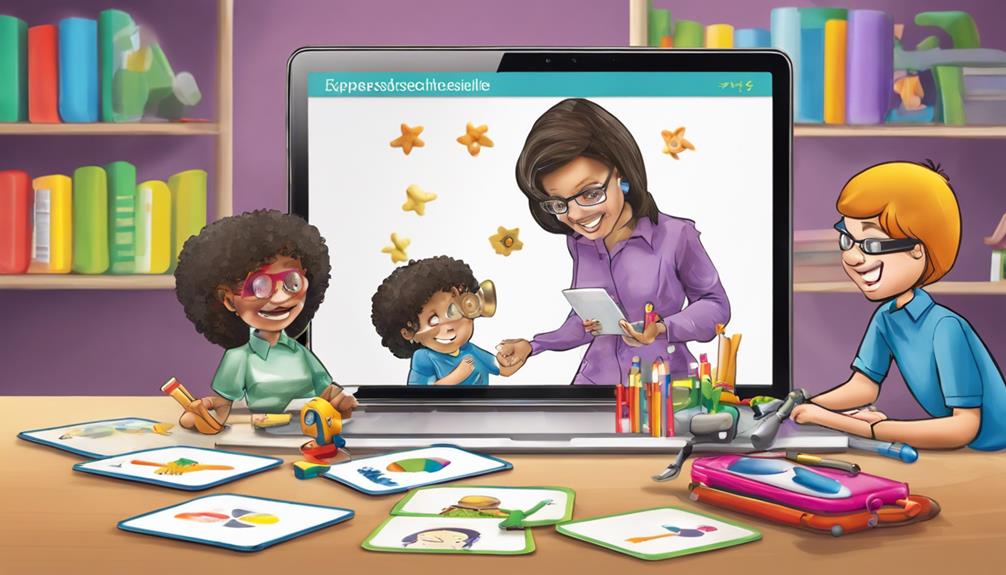
Imagine a world where words flow effortlessly, where communication is a seamless dance of expression. In this realm, Expressable speech therapy acts as a guiding light, illuminating the path to improved speech and language skills.
But how does this innovative approach actually work? Let's explore the intricacies of this virtual platform that is revolutionizing the way we connect and communicate.
Key Takeaways
- Expressable Speech Therapy offers personalized online sessions for speech, language, voice, and swallowing issues.
- Tailored treatment plans cater to individual communication needs and goals effectively.
- Certified therapists provide innovative therapy approaches with flexible scheduling options.
- Specialized care strategies address unique speech challenges for all ages.
Overview of Expressable Speech Therapy
At Expressable Speech Therapy, our certified speech-language pathologists provide personalized online sessions to address speech, language, voice, and swallowing issues from the convenience of your home. Our online platform offers a unique opportunity to receive speech therapy in a comfortable and familiar setting, eliminating the need to travel to appointments. Through our tailored care approach, our therapists design individualized treatment plans to meet each client's specific communication needs.
Communication is at the core of what we do. Our therapists work closely with clients to improve their ability to express themselves effectively and confidently. Whether it's articulation, fluency, voice modulation, or swallowing difficulties, our team is dedicated to helping clients enhance their communication skills.
With online therapy, clients benefit from the expertise of our therapists without the constraints of traditional in-person sessions. Our secure and private platform ensures that clients can access therapy from anywhere at a time that suits them best. Experience the convenience and effectiveness of online speech therapy with Expressable.
Benefits of Online Therapy Sessions

Moving forward, let's explore the advantages of engaging in online therapy sessions with Expressable Speech Therapy. Online speech therapy offers a range of benefits that cater to the needs of clients seeking convenient and effective speech therapy services. Here are some key benefits of choosing online therapy with Expressable:
| Benefits of Online Therapy Sessions | ||
|---|---|---|
| Flexible Scheduling Options | High Satisfaction | Secure Platform |
| Convenient Access | Text Support |
Expressable's online therapy sessions provide flexible scheduling options, allowing clients to easily fit therapy into their busy lifestyles. The high satisfaction rate, with an average rating of 4.9/5, underscores the effectiveness and quality of the online therapy services offered. Additionally, the secure platform ensures confidential care, while the convenient access to therapy 7 days a week enables clients to receive the support they need when it suits them best. Furthermore, the availability of text support throughout the week between sessions enhances the overall experience and progress in therapy.
Personalized Treatment Plans
Personalized treatment plans at Expressable Speech Therapy are meticulously crafted to address each client's unique speech and language requirements. Our therapists take the time to understand each individual's communication challenges and goals, allowing them to create tailored interventions that focus on improving speech clarity and boosting communication confidence.
By setting individualized goals, we ensure that our clients receive targeted interventions that are specifically designed to help them progress in their speech therapy journey. These plans aren't one-size-fits-all; instead, they're customized to meet the needs of each person we work with. Whether someone is struggling with articulation, language skills, or overall communication abilities, our personalized treatment plans are structured to support their development and growth.
At Expressable, we believe that by offering personalized care, we can better serve our clients and help them achieve their speech therapy objectives effectively. Our commitment to creating customized treatment plans ensures that every individual receives the support and attention they need to succeed in improving their communication skills.
Tailored Therapy for Unique Needs

At Expressable, we tailor therapy to meet your unique needs through customized treatment plans, a personalized approach to therapy, and individualized care strategies.
Our specialized therapists are dedicated to addressing your specific communication challenges to ensure effective and personalized treatment.
Whether it's accent modification, gender-affirming voice training, or other speech and language issues, we cater to individuals of all ages with a focus on achieving your individual goals.
Customized Treatment Plans
Crafting tailored treatment plans at Expressable involves precisely addressing each individual's unique speech therapy needs. Our approach is dedicated to providing personalized therapy sessions that target specific communication challenges and goals effectively.
To ensure the best treatment outcomes, specialized therapists are matched with clients based on their distinct needs for optimal progress and success. Treatment plans are meticulously designed to enhance speech, language, voice, and swallowing issues with care and precision.
Each therapy session is carefully crafted to focus on the individual's specific areas of concern, fostering continual progress and eventual success. Through this personalized approach, we strive to meet the diverse needs of our clients and support them on their journey to improved communication skills.
Personalized Approach to Therapy
Our focus on individualized treatment plans at Expressable seamlessly extends to tailoring therapy sessions to meet each client's unique needs and goals. Therapists at Expressable understand the importance of personalized care in speech therapy.
By creating tailored therapy sessions that align with each individual's communication objectives, we ensure that clients receive interventions specifically designed to address their speech, language, or communication disorder effectively. This tailored approach enhances the overall effectiveness of therapy by concentrating on the areas where improvement is needed the most.
At Expressable, we prioritize meeting the unique needs of each client, empowering them to make significant progress in their communication skills through our personalized therapy sessions.
Individualized Care Strategies
Tailoring therapy sessions at Expressable to meet the unique needs and goals of each client is paramount in our approach to individualized care strategies.
- Our specialized therapists are matched to clients based on their specific communication challenges and requirements.
- Customized therapy plans are designed to maximize progress and results for each individual.
- The focus is on providing personalized attention and support to help clients achieve their communication objectives.
Convenience of Online Sessions

We understand the importance of convenience in your busy schedule.
Virtual therapy offers benefits such as flexibility in scheduling and the ability to access sessions from anywhere.
These advantages make online speech therapy a practical and efficient choice for our clients.
Virtual Therapy Benefits
With virtual speech therapy sessions offered seven days a week, clients can conveniently receive care from the comfort of their own homes, eliminating the need for lengthy commutes to traditional therapy locations.
- Flexibility: Clients have the freedom to schedule sessions at times that suit their daily routines.
- Home Practice: Practicing speech exercises in a familiar environment can lead to more effective results.
- Secure Platform: Expressable ensures a confidential and safe online space for therapy sessions.
Scheduling Flexibility Advantages
For individuals seeking the convenience of online speech therapy sessions, Expressable provides flexible scheduling options that cater to busy lifestyles and varying time zones.
Our virtual speech therapy sessions are available seven days a week, offering clients the flexibility to fit therapy around their schedules. Through video chat, our online therapy works seamlessly, allowing clients to receive care from the comfort of their homes without the need for long commutes.
With our flexible hours, clients can easily schedule sessions that work best for them, ensuring consistent progress towards their speech therapy goals.
We understand the importance of accommodating busy lifestyles, and our platform prioritizes making speech therapy accessible and convenient for all.
Access From Anywhere
Ensuring accessibility from any location, Expressable offers online speech therapy sessions that provide convenience and flexibility for clients seeking to improve their communication skills.
- Clients can receive virtual therapy sessions from the comfort of their own home, eliminating the need for long commutes.
- Online sessions are available 7 days a week, offering flexible scheduling options to accommodate busy lifestyles.
- The platform used for online therapy is private and secure, ensuring confidentiality and a safe environment for therapy.
With the convenience of accessing a speech therapist online, individuals can benefit from the flexibility of scheduling sessions at their convenience. The secure platform used for virtual therapy sessions adds an extra layer of comfort and privacy, making the therapy experience more accessible and effective.
Communication Skills Improvement
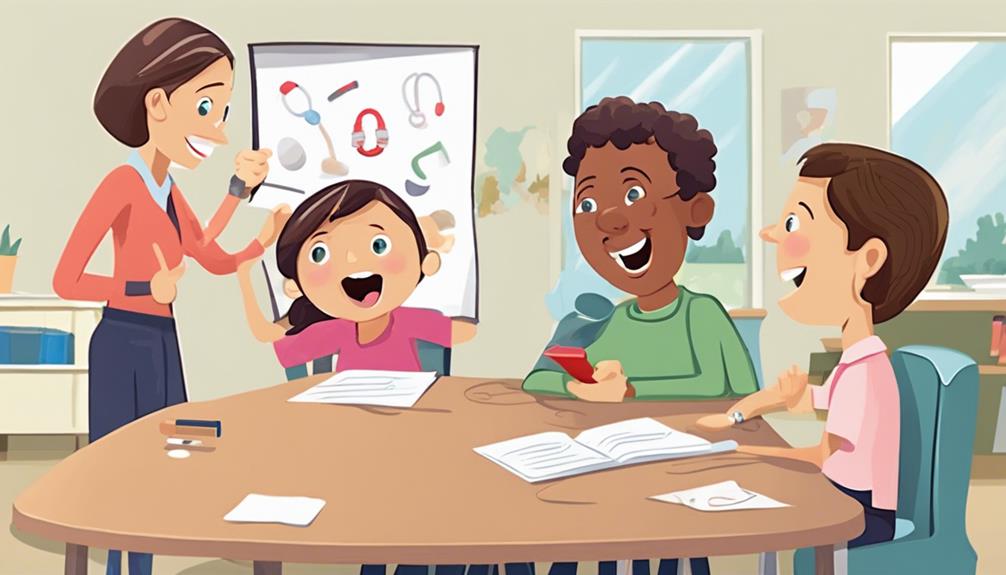
Improving communication skills through Expressable Speech Therapy leads to enhanced confidence and comfort in speaking. By targeting articulation, vocal techniques, and providing effective communication tools, individuals acquire the necessary skills to express themselves clearly and confidently.
Through tailored therapy sessions, clients engage in exercises that promote skill development and consistency in progress. The average satisfaction rating of 4.9/5 indicates high levels of contentment among clients, highlighting the effectiveness of the therapy in addressing speech challenges.
Additionally, the inclusion of texting support throughout the week offers continuous guidance and encouragement for applying newly acquired communication skills in real-life scenarios. This comprehensive approach ensures that individuals not only enhance their communication abilities but also feel empowered to communicate effectively in various contexts.
Expressable Speech Therapy equips clients with the tools and techniques needed to communicate confidently, ultimately leading to improved overall communication skills and increased self-assurance.
Overcoming Speech Challenges

Transitioning from improving communication skills, overcoming speech challenges with Expressable Speech Therapy involves personalized online sessions tailored to address a range of issues such as stuttering, aphasia, voice disorders, and more. Certified speech-language pathologists guide clients through targeted exercises to help them overcome their specific speech difficulties. These professionals work closely with individuals to create customized therapy plans that cater to their unique needs and goals.
The practice exercises recommended by the therapists are designed to reinforce the learning from sessions and accelerate progress in speech improvement. Through these personalized online sessions, individuals can work on enhancing their communication skills in a comfortable and convenient environment.
The supportive nature of the program aims to boost confidence levels and proficiency in both verbal and nonverbal interactions. Clients can expect dedicated guidance and expertise from experienced speech-language pathologists to navigate and conquer their speech challenges effectively.
Innovative Therapy Approach

Utilizing cutting-edge technology and personalized therapy plans, Expressable Speech Therapy implements an innovative approach to address a variety of speech challenges effectively. Our tailored therapists work closely with clients to create individualized therapy plans that cater to specific needs and goals. Through live online sessions, clients engage in practice exercises designed to reinforce learning and promote progress between sessions. Additionally, we offer texting support throughout the week to provide continuous assistance and guidance.
Convenience is key in our therapy approach, with flexible scheduling options that make it easy for clients to fit sessions into their busy lives. Moreover, our focus extends beyond the virtual session, encouraging clients to apply newly acquired skills in real-life situations for tangible communication improvement. By practicing communication strategies in everyday scenarios, clients can see a direct impact on their ability to effectively convey their thoughts and ideas. This holistic approach sets Expressable Speech Therapy apart, ensuring comprehensive support for our clients as they work towards their speech therapy goals.
Revolutionizing Speech Therapy Services

Revolutionizing speech therapy services at Expressable involves incorporating cutting-edge technology and personalized care to enhance communication skills effectively. Our online speech therapy platform is designed to provide tailored services that cater to individuals of all ages in a convenient and accessible way. Here are three key aspects that set our services apart:
- Tailored Services: Each client receives personalized care from our certified speech-language pathologists, ensuring that the therapy sessions address their specific needs and goals effectively.
- Convenience: Through our online platform, clients can access speech therapy from the comfort of their own homes, eliminating the need for travel and allowing for flexible scheduling options to fit busy lifestyles.
- Accessibility: By focusing on online speech therapy, we aim to make communication skills improvement more accessible to a wider range of individuals, breaking down barriers to receiving quality care.
At Expressable, we're committed to providing a service that not only enhances communication skills but also prioritizes the convenience and accessibility of speech therapy for all.
Client-Centered Care Approach

At Expressable Speech Therapy, we prioritize a client-centered care approach, where therapy plans are customized to meet individual needs and goals.
Therapists track each client's progress closely, ensuring that treatment remains effective and tailored.
Personalized Therapy Plans
When creating personalized therapy plans at Expressable, we prioritize a client-centered care approach that tailors each plan to the individual's unique needs and goals.
- Therapy plans are customized to address the specific communication needs of each child.
- Client input is valued in setting therapy goals, fostering a collaborative relationship.
- The therapy plans evolve based on client progress, feedback, and changing communication requirements.
This personalized approach ensures that therapy at Expressable is effective, engaging, and aligned with the individual's communication journey. By focusing on the client's distinct needs and aspirations, we strive to provide a supportive and empowering environment for growth and development.
Individual Progress Tracking
Individual progress tracking at Expressable Speech Therapy is a pivotal aspect of our client-centered care approach, allowing us to tailor therapy sessions to meet each client's specific needs and goals. By monitoring individual progress closely, we can create personalized care plans that are adjusted based on each client's feedback and advancements. This approach enables us to optimize results by making real-time adjustments to therapy techniques, exercises, and goals. Our therapists are committed to using client-centered care approaches to monitor improvements, address any barriers hindering progress, and celebrate successes along the therapy journey. Through continuous assessment and adaptation of treatment plans, we ensure that each session is maximally effective and contributes to our clients' speech therapy goals.
| Benefits of Individual Progress Tracking | |
|---|---|
| Tailored therapy sessions | Personalized care plans |
| Optimized results | Client-centered care approaches |
Speech Therapy Co-Pilot System

The Speech Therapy Co-Pilot System by Expressable is a unique tool that enhances therapy outcomes for clients by providing personalized exercises and consistent text message support. This system aims to improve communication skills effectively by offering the following key features:
- Personalized exercises tailored to individual needs and goals, allowing clients to practice specific areas of speech and language between therapy sessions.
- Text message support throughout the week to encourage progress and consistency, providing gentle reminders and motivational messages to keep clients engaged.
- Guidance on implementing new skills and techniques in real-life communication scenarios, helping clients transfer what they learn in therapy to everyday interactions.
With the Speech Therapy Co-Pilot System, clients receive the necessary support and resources to reinforce their learning, enhance their communication skills, and track their progress effectively. This personalized approach ensures that clients can make meaningful strides in their speech therapy journey.
Learning and Progress Tracking
Our progress tracking tools at Expressable empower us to monitor improvements in speech and language skills effectively, allowing for tailored treatment plans and informed adjustments based on data and client feedback.
By utilizing data and feedback, our therapists can make precise modifications to treatment plans, ensuring optimal results for our clients.
Through regular updates on progress and achievements during therapy sessions, clients are actively engaged in their journey towards improved communication skills.
Our tracking methods, which include assessments, practice logs, and ongoing communication with therapists, provide a comprehensive view of each individual's progress.
This transparency and accountability within our platform not only enhances the effectiveness of therapy but also fosters a sense of trust and collaboration between therapists and clients.
At Expressable, we're committed to using cutting-edge progress tracking tools to deliver personalized speech therapy that prioritizes the unique needs and goals of each individual.
Success Stories and Testimonials

As clients progress through their speech therapy journey with Expressable, their success stories and testimonials highlight the transformative impact of our personalized approach. Our clients have shared inspiring stories of growth and development as they work towards their speech goals. Here are a few key points that stand out:
- Improved Confidence: Many clients have reported a significant boost in their confidence levels after engaging in therapy with Expressable. This newfound confidence has translated into more comfortable and effective communication in their personal and professional lives.
- Tangible Progress: Clients frequently mention the noticeable progress they make in addressing their speech challenges with the help of our tailored vocal techniques and communication strategies.
- Enhanced Communication Skills: Expressable equips individuals with the necessary skills to communicate effectively in diverse settings, empowering them to express themselves with clarity and precision.
These testimonials underscore the positive outcomes that can be achieved through dedicated speech therapy and the commitment of our team to support each client's journey towards improved communication.
Frequently Asked Questions
What Are the Two Types of Speech Therapy?
There are two types of speech therapy: pediatric and adult. Pediatric speech therapy focuses on children's communication and language development, while adult speech therapy addresses communication challenges in grown-ups, like voice disorders and accent modification.
Both therapies aim to enhance speech, language, and communication skills. Specialized therapists provide personalized care based on age and specific needs in each type of speech therapy.
How Does the Speech Therapy Work?
Well, speech therapy works wonders by helping us unlock our communication potential. Therapists guide us through exercises, build our confidence, and refine our vocal skills.
With Expressable, we receive tailored support to practice between sessions and even get texting help throughout the week. It's like having a personal speech coach right at our fingertips, empowering us to speak with clarity and confidence in real-life situations.
How Effective Is Virtual Speech Therapy?
Virtual speech therapy is highly effective, offering comparable progress to in-person sessions. Research indicates its success in improving speech and language skills, particularly benefiting those in remote areas.
The convenience of online therapy, with flexible scheduling and access to specialized therapists, has made it a popular choice. It provides a convenient and accessible way to receive quality care without the need for commuting.
What Is the Difference Between Speech Therapy and Voice Therapy?
Voice therapy and speech therapy differ in their focus. Voice therapy targets vocal function and quality, working on resonance and pitch control. On the other hand, speech therapy addresses a broader range of communication disorders like articulation and language.
Both therapies are provided by certified professionals but with distinct goals and techniques. Understanding these differences is crucial for individuals seeking treatment for voice or speech-related concerns.
Conclusion
In conclusion, Expressable speech therapy offers a convenient and effective way to address speech difficulties. With tailored therapy sessions, personalized treatment plans, and a client-centered care approach, individuals can enhance their communication skills from the comfort of their own home.
The Speech Therapy Co-Pilot system provides support and guidance throughout the process, making the journey to improved speech and expression a positive and empowering experience.
Join us on this journey to unlock your full communication potential.
Therapies and Interventions
Answering 'When' Questions in Speech Therapy Sessions
Get ready to unravel the mysteries of answering 'When' questions in speech therapy sessions and discover the key strategies for success.

In speech therapy sessions, answering 'When' questions can sometimes feel like navigating a maze of uncertainties. We've all encountered those moments where time seems to slip through our fingers, leaving us grasping for explanations.
But fear not, as we explore effective strategies and engaging activities to unravel the mystery of 'When' in therapy. By understanding the significance of time concepts and incorporating creative approaches, we can help our clients master the art of answering 'When' questions with confidence and clarity.
Let's unravel the secrets together.
Key Takeaways
- Teaching 'When' questions improves children's time comprehension.
- Utilize daily routines and visual aids for effective learning.
- Incorporate calendars to enhance understanding of past, present, and future.
- Engage in interactive activities to practice answering 'When' questions.
Importance of 'When' Questions in Therapy
Understanding the significance of 'When' questions in therapy is paramount for enhancing children's comprehension of time concepts and their ability to respond to time-related inquiries. Time concepts are fundamental for navigating daily routines and understanding the sequence of events. By teaching children how to answer questions about 'When,' therapists can empower them to communicate effectively about past, present, and future events.
Employing specific teaching strategies tailored to time concepts is essential for facilitating learning. Visual aids, such as calendars and daily schedules, play a crucial role in reinforcing these concepts and making them more tangible for children. Engaging children in activities that involve 'When' questions not only makes learning enjoyable but also solidifies their understanding of time-related concepts.
Utilizing games and interactive exercises that focus on 'When' questions can effectively capture children's attention and enhance their ability to grasp the abstract nature of time.
Challenges in Answering 'When' Questions

Children with language delays often encounter significant challenges when asked 'When' questions due to the abstract nature of time concepts. 'When' questions require an understanding of temporal relationships and the sequencing of events. Difficulties in answering 'When' questions may indicate underlying issues with language comprehension.
Here are some key challenges faced when addressing 'When' questions:
- Abstract Time Concepts: Children may struggle with grasping abstract time concepts such as past, present, and future.
- Temporal Relationships: Understanding the order of events and how they relate to one another can be confusing for some children.
- Language Comprehension: Difficulties in processing and understanding language may hinder a child's ability to respond accurately to 'When' questions.
Navigating these challenges necessitates the use of effective teaching strategies that cater to each child's unique learning needs.
Strategies for Teaching 'When' Questions
In our speech therapy sessions, we implement various strategies to effectively teach 'When' questions to children with language delays. We utilize daily routines and calendars as tools to help children understand time concepts.
By incorporating fill-in-the-blank activities focusing on cause and effect 'when' questions, we encourage critical thinking and comprehension. Interactive activities such as snack projects and games are integrated to make learning engaging and memorable. These activities not only reinforce the understanding of 'when' questions but also make the sessions enjoyable for the children.
Additionally, we make use of a variety of resources like worksheets, games, and speech therapy kits specifically designed for teaching 'when' questions. By focusing on different time concepts such as day versus night, seasons, and situational scenarios, we aim to enhance the children's understanding of 'when' questions in a holistic manner.
Incorporating Daily Routines in Sessions

When incorporating daily routines in speech therapy sessions, we aim to utilize familiar activities such as morning routines, meals, and bedtime to teach 'when' questions effectively.
By integrating visual schedules and calendars, we provide structure and reinforcement for time concepts.
Practicing sequencing within daily activities helps children grasp time-related concepts crucial for answering 'when' questions.
Daily Routines Examples
Incorporating daily routines into speech therapy sessions provides structured opportunities for practicing time concepts and sequencing while enhancing children's understanding of the concept of time. Daily routines like morning routines, meal times, and bedtime can serve as excellent examples to teach these concepts effectively. By incorporating these routines, children can learn to answer 'when' questions more proficiently.
Visual support tools such as visual schedules and calendars can further aid in reinforcing these concepts. Moreover, practicing 'when' questions within daily routines not only helps in therapy sessions but also allows children to generalize these skills to real-life situations outside of therapy, fostering independence and confidence.
Routine-Based Therapy Benefits
By integrating daily routines into speech therapy sessions, we create a structured framework that enhances children's ability to comprehend time concepts and sequencing, ultimately improving their skills in answering 'when' questions effectively.
Daily routines provide a practical context for learning time-related concepts, such as before and after, which are crucial for understanding 'when' questions. Through routine-based therapy, children can practice linking activities to specific times, reinforcing their understanding of temporal relationships.
This approach not only aids in language skill development but also promotes independence in daily activities. By incorporating familiar routines like morning rituals and bedtime practices, therapists can help children navigate time concepts more proficiently, leading to enhanced communication and cognitive abilities.
Utilizing Calendars for Time Concepts
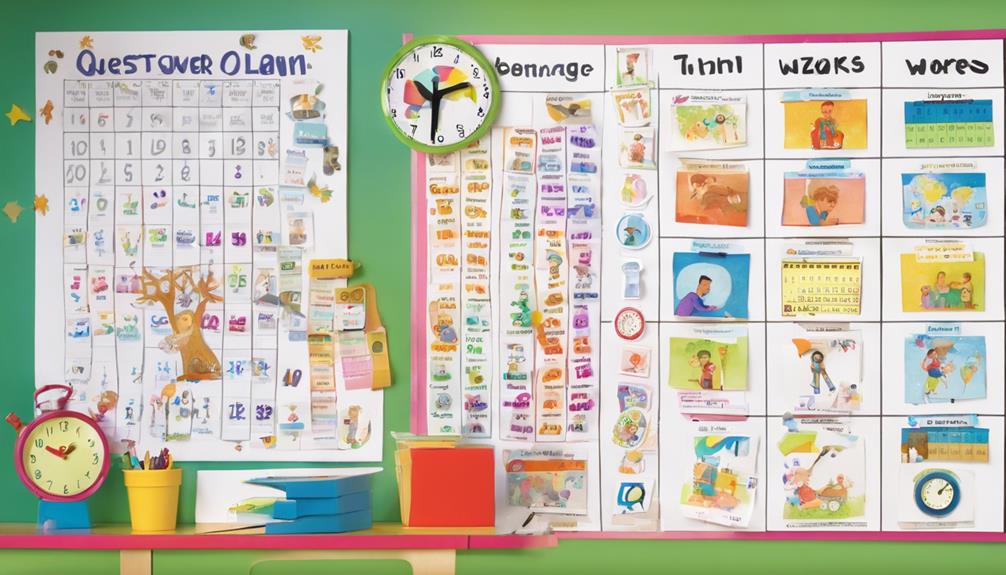
Utilizing calendars enhances the understanding of time concepts in speech therapy sessions. Calendars provide a tangible way to introduce and reinforce the idea of time, aiding in teaching 'when' questions effectively. Here are three key benefits of incorporating calendars in speech therapy sessions:
- Visual Representation: Calendars offer a visual representation of time concepts, making it easier for children to grasp the sequencing of events and understand timing.
- Organizing Daily Routines: By utilizing calendars, therapists can help children organize their daily routines and events, fostering better comprehension of when activities occur.
- Improving Time Awareness: Using calendars can enhance children's awareness of past, present, and future events, thereby improving their ability to respond to 'when' questions accurately.
Incorporating calendars into therapy sessions not only helps children associate events with specific times but also aids in predicting future activities and sequencing events effectively.
Enhancing Cause and Effect Understanding

Enhancing cause and effect understanding in speech therapy involves connecting 'When' questions to daily activities and using interactive techniques to reinforce learning. By teaching 'When' questions, children can grasp cause and effect relationships concerning time concepts. Utilizing daily routines and calendars can help solidify understanding by practicing before/after activities. Fill in the blank activities are beneficial tools to assist children in answering cause and effect 'When' questions, like eating when hungry or bedtime routines.
Integrating activities such as snack or craft projects, playing Clue Junior, and exploring various scenarios can effectively teach 'When' questions. Games, practical tasks, and visual aids play crucial roles in enhancing children's abilities to respond to 'When' questions during speech therapy sessions. These methods not only make learning enjoyable but also encourage active participation and understanding of cause and effect relationships. By incorporating these strategies, speech therapists can create engaging sessions that promote comprehension and retention of 'When' questions.
Engaging 'When' Question Activities

As we explore engaging 'When' question activities, we can consider various activity ideas that incorporate timing practice techniques and progress monitoring tips.
These activities aim to enhance the understanding of 'when' questions through hands-on experiences and interactive learning methods.
Activity Ideas for 'When
To engage students in practicing 'when' questions during speech therapy sessions, incorporate daily routines and interactive activities like snack projects and school calendars. Here are some engaging activity ideas for 'when' questions:
- Snack Projects: Create a schedule for making snacks together, asking questions like 'When do we eat lunch?' or 'When should we prepare our snack?'
- School Calendars: Use school calendars to identify important dates and events, prompting questions such as 'When is the next holiday?' or 'When does the school year end?'
- Clue Junior Game: Play games like Clue Junior that involve deducing 'when' events occurred, reinforcing the understanding of time concepts in a fun way.
Timing Practice Techniques
Engage students in speech therapy sessions by incorporating engaging 'When' question activities that focus on timing practice techniques. Utilize visual schedules to help children grasp time concepts and reinforce their understanding of 'when' questions effectively.
Implement sequencing activities that involve before/after scenarios to enhance sequencing skills, aiding in improved responses to 'when' questions. Introduce fill-in-the-blank exercises to teach cause and effect 'when' questions, fostering critical thinking abilities.
Progress Monitoring Tips
Monitoring progress in answering 'When' questions during speech therapy sessions can be effectively achieved through the use of data tracking sheets.
To ensure advancements in understanding time concepts and responding to 'When' questions, consider implementing goal-setting strategies.
Engage clients in role-playing scenarios to assess comprehension and application of 'When' question responses.
Utilize visual aids such as calendars and schedules to facilitate progress monitoring of 'When' question skills.
Collaboration with parents and educators to collect feedback on the effectiveness of these activities is crucial for adjusting intervention plans accordingly.
Interactive 'Day or Night' Game

During the 'Day or Night' game in speech therapy, children engage in activities that reinforce their understanding of daytime and nighttime concepts. The game provides structured practice to help children grasp time concepts effectively. By asking questions related to various activities like taking a bath, riding a bike, and eating breakfast, children learn to differentiate between daytime and nighttime tasks. This interactive activity encourages critical thinking and enhances children's ability to answer 'when' questions accurately. Here is a table summarizing the key aspects of the 'Day or Night' game:
| Key Aspects | Description |
|---|---|
| Interactive Activity | Engaging questions to help children distinguish between daytime and nighttime |
| Time Concepts | Focused on improving understanding of time concepts through fun activities |
| Structured Practice | Provides a structured way for children to practice answering 'when' questions |
| Day or Night Game | Reinforces learning by associating activities with specific times of the day |
| Critical Thinking | Encourages critical thinking about time-related activities |
Seasonal 'Winter or Summer' Game

We'll now explore the seasonal 'Winter or Summer' game, focusing on weather-related vocabulary practice, timing, event sequencing, and calendar-based activities.
This game offers children the opportunity to differentiate between winter and summer activities, such as swimming in summer and building a snowman in winter.
Weather-Related Vocabulary Practice
In speech therapy sessions, we engage children in a seasonal 'Winter or Summer' game to practice weather-related vocabulary. This helps them distinguish between activities associated with each season such as swimming, building a snowman, and wearing a coat.
Children learn weather-related vocabulary in a fun and interactive way. Understanding the differences between summer and winter activities is reinforced. The game aids in comprehending time and seasons better.
Timing and Event Sequencing
Engaging children in the seasonal 'Winter or Summer' game provides a dynamic approach to teaching timing and event sequencing concepts in speech therapy sessions. This game focuses on differentiating between winter and summer activities, such as swimming, building a snowman, or wearing a coat. By associating these activities with specific seasons, children can practice answering 'when' questions, enhancing their understanding of seasonal contexts.
Through this game, kids develop the ability to comprehend and respond to when questions based on the timing of events in different seasons. The interactive nature of the game makes learning fun and engaging, allowing children to grasp timing concepts effectively while enjoying seasonal activities.
Calendar-Based Activities
Utilizing a calendar-based approach, the seasonal 'Winter or Summer' game in speech therapy aids children in distinguishing activities linked to winter and summer seasons. This activity helps children grasp time concepts, understand seasonal differences, and develop critical thinking skills.
- Children learn to associate swimming with summer and building a snowman with winter.
- They practice identifying the appropriate season for activities like wearing a coat.
- The game encourages children to think critically about when specific activities typically occur in relation to the seasons.
Situational 'When' Question Game

The Situational 'When' Question Game challenges children to think critically about time concepts in various scenarios. This interactive activity is a valuable tool in speech therapy sessions to teach WH questions and enhance language skills. By prompting children to provide 'when' responses to different daily activities such as washing hands, eating, and sleeping, the game helps them apply their understanding of time effectively. The practical approach of this game encourages children to think about time in real-life situations, improving their comprehension and communication abilities.
| Benefits of the Situational 'When' Question Game | |
|---|---|
| Enhances critical thinking skills | Promotes practical application of time concepts |
| Improves language skills | Encourages active participation in speech therapy sessions |
Resources for Teaching 'When' Questions
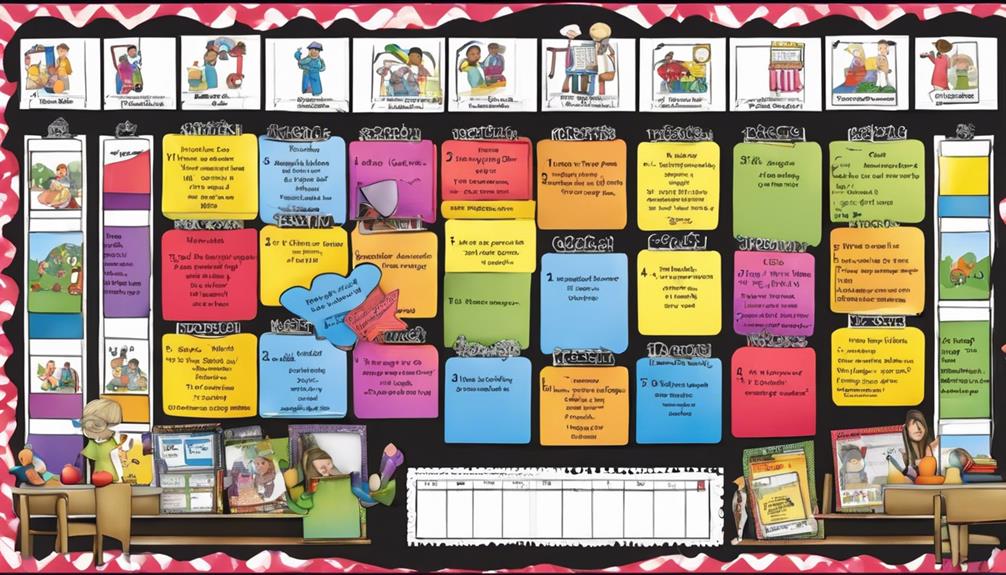
When teaching 'When' questions in speech therapy, we recommend utilizing visual schedules and calendars as effective tools for reinforcing time concepts. To enhance understanding and engagement, incorporating daily routines and activities can provide practical contexts for learning. Additionally, interactive games focused on time concepts can make learning 'When' questions more enjoyable and memorable.
Visual schedules and calendars: These tools help create a visual representation of time, making it easier for individuals to grasp the concept of 'When' questions.
Daily routines: By linking 'When' questions to everyday activities, such as meal times or bedtime, individuals can apply their knowledge in real-life situations.
Interactive games: Engaging in games that require answering 'When' questions can make the learning process interactive and fun, increasing motivation and retention of time concepts.
Fun Activities for 'When' Questions

Engaging in interactive activities is a key component of teaching 'When' questions in speech therapy sessions. To make learning enjoyable, incorporating fun activities into sessions can be highly beneficial.
Snack or craft projects provide a hands-on experience while practicing answering 'when' questions. Using school calendars as visual aids can help in understanding time concepts related to 'when' questions in a practical way. Games like Clue Junior, which involve solving mysteries, can be a playful yet effective method to practice answering 'when' questions.
Exploring various activities tailored for teaching 'when' questions in speech therapy sessions can keep the sessions engaging and productive. By incorporating games and practical tasks, therapists can reinforce the learning of 'when' questions in a way that's both enjoyable and educational for their clients. These activities not only make the learning process more fun but also help in enhancing comprehension and retention of the concepts related to 'when' questions.
Targeting Time Concepts in Therapy
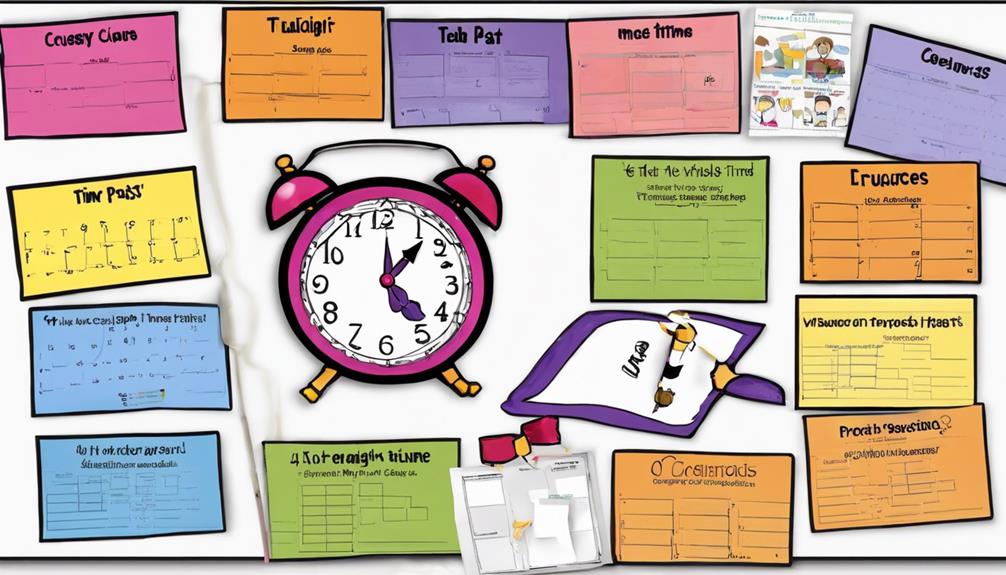
To effectively target time concepts in therapy sessions, incorporating daily routines and calendars can serve as valuable tools for enhancing children's understanding of time-related concepts when answering questions. Daily routines provide a structured way to introduce time concepts in a practical manner, while calendars offer a visual representation of time passing. By implementing these strategies, children can grasp the sequencing of events and learn to associate specific times of day with different activities.
- Daily Routines:
Establishing consistent daily schedules can help children develop a sense of time and understand the sequence of events throughout the day.
- Calendars:
Using visual aids like calendars can aid in teaching children about days, weeks, and months, allowing them to visualize the passage of time.
- Sequencing:
Engaging in activities that require sequencing events in chronological order can reinforce understanding of time concepts and improve the ability to answer 'When' questions accurately.
Supporting Clients in Answering 'When' Questions

When supporting clients in answering 'when' questions, we focus on using time-related cueing strategies and visual timeline tools to enhance comprehension.
These tools help individuals grasp the concept of time and sequence events accurately.
Time-Related Cueing Strategies
Utilizing visual aids like calendars, clocks, and schedules can significantly enhance clients' ability to respond to 'When' questions in speech therapy sessions. Time-related cueing strategies involve incorporating context clues, daily routines, and before/after sequences to support clients in understanding and answering 'When' questions effectively.
Here are three key techniques to assist clients in improving their time-related comprehension:
- Providing context clues and prompts related to daily routines and events
- Using before/after sequences and time markers such as yesterday, tomorrow, and next week
- Implementing structured routines and repetitive practice
Visual Timeline Tools
Visual timeline tools play a crucial role in speech therapy sessions by providing a clear sequence of events to assist clients in understanding and answering 'When' questions. These tools incorporate pictures, symbols, or words arranged chronologically to help individuals grasp the concept of time. By utilizing visual timelines, clients can enhance memory recall and comprehend past, present, and future events related to 'When' questions.
Engaging with visual aids like timelines enables clients to practice sequencing events and develop a deeper understanding of time concepts during speech therapy sessions. The use of visual timeline tools not only enhances engagement but also facilitates learning, ultimately improving clients' ability to effectively respond to 'When' questions.
Frequently Asked Questions
How Do You Answer Why Questions in Speech Therapy?
When answering 'Why' questions in speech therapy, we encourage reasoning and understanding cause and effect relationships. It's crucial to connect 'Why' questions to personal experiences for better comprehension.
Various strategies, like visual aids and real-life examples, help prompt children to provide logical explanations. Monitoring progress involves observing the child's ability to reason and explain different situations.
It's essential to foster critical thinking skills in responding to 'Why' questions effectively.
What Is the Hierarchy of Questions in Speech Therapy?
At the core of speech therapy question hierarchy lies a structured progression from simpler to more complex inquiries. Starting with concrete questions like 'what,' we gradually advance to abstract ones like 'when.'
Mastering lower-level queries is crucial before tackling higher-level ones. This methodical approach fosters critical thinking and enhances comprehension skills.
Building a solid foundation with fundamental questions is key to confidently navigating the more intricate aspects of speech therapy question hierarchy.
How Do You Work on Where Questions?
When working on where questions, we focus on teaching spatial concepts related to location. We use visual aids like maps, calendars, and role-playing scenarios to help children understand and respond accurately.
Activities involving identifying locations and using prepositions like 'in,' 'on,' 'under,' are essential. We also incorporate games and interactive tasks to make learning fun and engaging.
How Do You Make a Speech Therapy Session Fun?
When we make a speech therapy session fun, we engage our clients through interactive games like Zingo and memory games. By incorporating sensory bins with themed activities and utilizing sticker books, picture scenes, and interactive technology like Boom Cards, we create a dynamic and enjoyable learning environment.
Collaborating with educators and parents helps us enhance the fun factor by incorporating diverse language targets and interactive resources. Visual aids, such as wordless picture books, further enrich our sessions.
Conclusion
In conclusion, by incorporating interactive activities, visual aids, and practical tasks into speech therapy sessions, children can improve their ability to answer 'When' questions and understand time concepts better.
Engaging in games, hands-on activities, and collaborative approaches can make learning fun and effective for children with language delays.
It's important to reinforce time-related skills through daily routines and utilize resources like calendars to support clients in mastering 'When' questions.
-
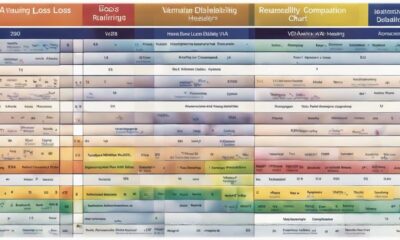
 Navigating the VA System1 month ago
Navigating the VA System1 month agoVA Hearing Loss Rating Chart: Understanding Disability Compensation
-

 Therapies and Interventions2 weeks ago
Therapies and Interventions2 weeks ago10 Auditory Processing Goals for Effective Speech Therapy
-

 Vetted2 months ago
Vetted2 months ago15 Best Oticon Hearing Aids to Improve Your Hearing in 2024
-

 Tinnitus2 months ago
Tinnitus2 months agoVA's Rating System for Tinnitus and Hearing Loss Explained
-

 Navigating the VA System1 month ago
Navigating the VA System1 month agoUnderstanding Bilateral Hearing Loss VA Rating Criteria
-

 Sign Language2 weeks ago
Sign Language2 weeks agoMastering the Art of Signing Letters in Sign Language
-

 Sign Language2 weeks ago
Sign Language2 weeks agoSign Language Emoji Translator: How to Communicate With Gestures
-

 Sign Language3 months ago
Sign Language3 months agoMedical Sign Language PDF: A Comprehensive How-To Guide
